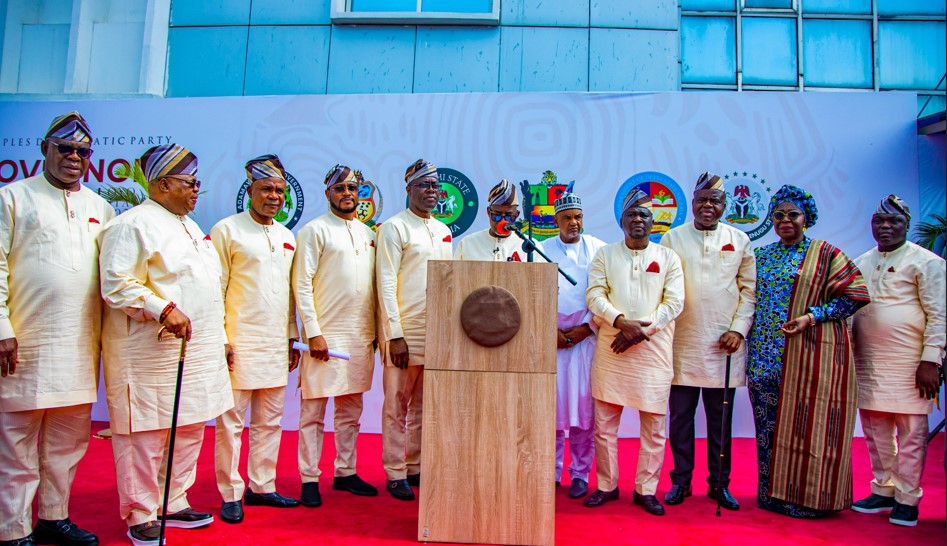The political landscape in Nigeria is heating up as the 2027 general elections draw closer. The Coalition of United Political Parties (CUPP), an alliance of opposition parties, has declared its unwavering commitment to challenging the ruling All Progressives Congress (APC) and President Bola Tinubu, despite recent pushback from governors elected on the Peoples Democratic Party (PDP) platform. This resistance from within the opposition ranks highlights the complex dynamics and strategic maneuvering currently shaping Nigerian politics. The CUPP, initially formed with the backing of prominent opposition figures like Atiku Abubakar, Peter Obi, and Nasir El-Rufai, aims to create a united front against the APC. However, the PDP Governors’ Forum, a powerful bloc within the opposition, has explicitly rejected the idea of a coalition or merger, preferring to absorb other parties and individuals into its own ranks. This divergence in strategy raises questions about the viability of a unified opposition challenge in 2027.
The PDP governors’ rejection of a formal coalition represents a calculated move to preserve the party’s identity and leverage its existing political infrastructure. They argue that the PDP, with its established national network, history of governance, and significant representation in legislative bodies, possesses a unique advantage over other opposition parties. This perspective emphasizes the PDP’s belief in its own strength and capacity to challenge the APC independently. The governors see absorbing smaller parties and individuals as a more effective strategy than diluting the PDP’s brand within a broader coalition. This stance reflects a pragmatic approach to power dynamics, prioritizing the consolidation of existing resources over the uncertainties of a multi-party alliance.
The CUPP, however, maintains that a coalition, rather than a merger, is the optimal path to unseating the APC. They emphasize that a coalition does not necessitate the dissolution of individual party identities. Instead, it fosters a collaborative environment where parties can pool their strengths and resources while retaining their distinct characteristics. This approach recognizes the diverse political landscape of Nigeria and the varying ideologies within the opposition. The CUPP argues that a coalition offers a more inclusive and representative platform to challenge the APC, potentially attracting a wider range of voters. This strategy highlights the importance of collective action and shared goals in confronting a dominant ruling party.
The clash between the PDP governors’ preference for absorption and the CUPP’s pursuit of a coalition underscores the inherent tension and complexity in opposition politics. While both sides share the common objective of defeating the APC, their differing approaches reveal strategic calculations and priorities. The PDP governors prioritize maintaining the party’s dominance within the opposition, leveraging its existing structures and brand recognition. The CUPP, on the other hand, prioritizes a broader, more inclusive approach, aiming to unite diverse opposition forces under a common banner. This strategic divergence could potentially fragment the opposition vote, benefiting the incumbent APC.
The political maneuvering within the opposition also reflects the challenging environment created by the ruling APC. The CUPP accuses the APC of employing authoritarian tactics to suppress opposition parties, creating a climate where strategic alliances are essential for survival. This accusation highlights the high stakes of the 2027 elections and the perceived need for a united opposition front to counter the APC’s dominance. The CUPP’s criticism further underscores the importance of protecting democratic values and ensuring a level playing field for all political actors. The alleged authoritarian tendencies of the ruling party add another layer of complexity to the already intricate political landscape.
The road to the 2027 elections remains uncertain, with the opposition grappling to forge a unified front. The conflicting strategies of the PDP governors and the CUPP highlight the challenges of building a cohesive opposition movement. The success of the opposition will depend on their ability to navigate these internal divisions and present a united front to challenge the incumbent APC. The upcoming elections promise a period of intense political activity, with the opposition’s strategic choices playing a crucial role in determining the outcome. The Nigerian electorate awaits the unfolding political drama with keen interest, as the various players position themselves for the 2027 contest. The interplay of ambition, strategy, and ideology will shape the course of Nigerian politics in the coming years.


